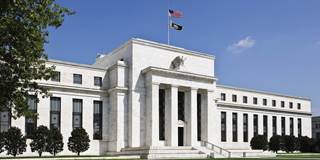The Blind Alley of Monetary Populism
In the US and elsewhere nowadays, populist politicians often claim that easy monetary policy is hurting ordinary workers, thereby exacerbating income inequality. But while inequality is a problem, raising interest rates is no way to address it.

SWARTHMORE – In the United States and elsewhere nowadays, populist politicians often claim that easy monetary policy is hurting ordinary workers, thereby exacerbating income inequality. But while inequality is a problem, raising interest rates is no way to address it.